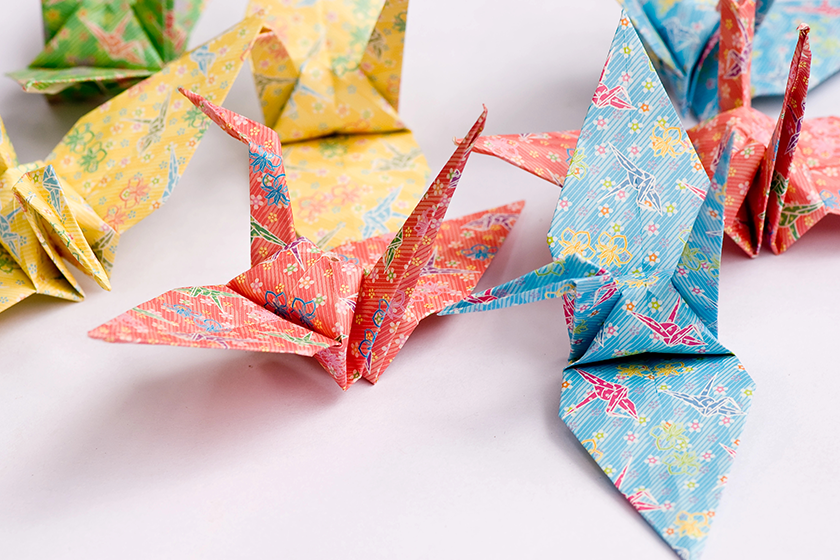In senior care homes in Hendersonville, NC, activities that combine mindfulness and creativity are increasingly popular. Folding origami is a mindful activity to try as you age. It offers benefits that extend beyond simple entertainment. This ancient Japanese art promotes relaxation, improves motor skills and enhances mental clarity. Thus, it’s a perfect pastime for elderly adults.
The Therapeutic Benefits of Origami
Origami, the traditional Japanese art of paper folding, is more than just a creative pastime. It serves as a therapeutic practice that positively impacts mental and physical well-being. Engaging in structured, repetitive folding motions can induce a meditative state. This helps to calm the mind and alleviate stress. By focusing on each step, individuals can let go of worries and immerse themselves in the present moment. Origami is an effective tool for managing anxiety.
This mindfulness aspect of origami is particularly beneficial in today’s fast-paced world. It provides a gentle escape, allowing participants to reset their mental state. For elderly individuals recovering from stress-related conditions, origami can act as a low-pressure activity that brings peace and relaxation.
Enhancing Fine Motor Skills
As people age, fine motor skills and hand dexterity often decline. Origami offers a fun and effective way to counteract this. The precise folds, creases and intricate manipulations required in paper folding engage hand muscles and improve coordination. Regular practice can strengthen finger strength and enhance hand-eye coordination, which is necessary for maintaining independence in later years.
For individuals recovering from injuries or managing conditions like arthritis, origami serves as an enjoyable form of physical therapy. It promotes gradual, low-intensity movement that helps maintain joint mobility and flexibility without causing strain. Each fold and crease becomes an exercise in regaining control and functionality.
Boosting Cognitive Function
Origami isn’t just beneficial for the hands—it also gives the brain a workout. The process of creating paper models requires concentration, problem-solving and memory recall, as participants follow sequential steps to achieve a final design. These cognitive demands stimulate neural pathways, supporting mental sharpness and agility.
For elderly individuals, origami can be particularly valuable in combating age-related cognitive decline. By challenging the brain to learn new patterns and techniques, the activity fosters neuroplasticity, helping to keep mental processes vibrant. Additionally, the structured nature of origami can aid individuals with memory conditions. It delivers a predictable and engaging task that promotes focus.
Creating a Sense of Accomplishment
One of the most rewarding aspects of origami is the sense of achievement it brings. Completing a project, whether it’s a simple crane or an intricate flower, delivers a tangible outcome of one’s effort and creativity. This sense of accomplishment boosts self-esteem and instills a feeling of purpose.
For elderly adults or individuals recovering from emotional challenges, this can be profoundly empowering. Origami demonstrates that learning and achieving new goals is possible at any stage of life. The process also encourages persistence and patience, as more complex designs often require several attempts before success.
Origami as a Social Activity
Origami isn’t just a solitary pursuit—it can also foster social connections. In group settings like senior care homes in Hendersonville, NC or community centers, origami classes or workshops provide a platform for shared learning and collaboration. Participants can exchange techniques, share creative ideas and celebrate each other’s successes.
These group activities promote not only social interaction but also emotional health and well-being. The act of folding paper together transcends language barriers and fosters a communal sense of achievement. For individuals who may feel isolated, engaging in origami as part of a group can rebuild confidence and strengthen interpersonal relationships.
Incorporating Origami into Daily Life
Integrating origami into daily routines doesn’t require extensive time or resources. This makes it an accessible hobby for people of all ages. Starting with simple designs like cranes, boats or flowers can help build confidence and establish a calming ritual. With practice, individuals can progress to more intricate patterns that challenge their skills and creativity.
A few minutes of folding paper each day can become a mindful habit. This offers a break from daily stressors. Whether folded during a quiet moment at home, as part of a family activity or in a group setting, origami invites a sense of tranquility and accomplishment into daily life. Beyond its therapeutic benefits, it also brings beauty and art into everyday moments.
Located in the heart of Hendersonville, NC, our retirement community provides the perfect setting for mindfulness and creativity. With scenic surroundings and a vibrant community atmosphere, every day here brings opportunities to learn and grow. Our exclusive Celebrations Activities & Events program brings unique opportunities like origami workshops to foster a sense of accomplishment and social connection. Guided by compassionate team members, residents can explore this timeless art form while engaging with peers in a supportive environment.
Discover how we blend creativity, care and comfort to create a lifestyle that celebrates aging with purpose and joy. Schedule a tour today and see why our residents love calling this community home.







